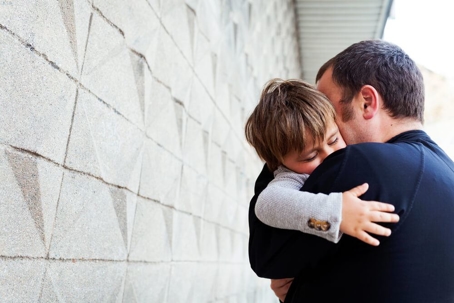What You Should Say to Your Child
One of the most important things you can tell your child during the divorce process is that you and the other parent love them very much. You should reinforce this over and over. A child should never be made to feel that a divorce is their fault. Sometimes a child will assume the divorce is their fault, even when they do not vocalize this concern.
You should make sure your child clearly understands that the divorce is not their fault. You should also ensure your child understands that although the parents are divorcing and will no longer live together, neither parent is divorcing the child and both parents will always be part of the child’s family. You should encourage your child to love, respect, and honor both parents and their respective families. They should never feel that they are no longer part of one side of their family.
What You Shouldn't Say to Your Child
You should not do or say anything to the child (or in the child’s presence) that would diminish the child’s affection for the other parent or disparage the other parent in any way. Hearing one parent make negative statements about the other parent can make a child feel that something is wrong with the child or make them feel like they must take sides. A child should never be put in either position.
You should also not allow other members of your family or your friends to make negative comments about the other parent in the presence of your child either. Additionally, you should not interrogate your child about what happens when they are with the other parent, instead, you should encourage your child to feel comfortable and safe sharing any information they want to share with you (including the fun times they have with the other parent).
Tips on Supporting Your Child Through the Divorce Process
You should encourage the relationship with the other parent and support the child in vocalizing their feelings and concerns. You should not ask your child questions that make them feel interrogated or uncomfortable. If you suspect the other parent is behaving inappropriately in some way, you should advise your attorney immediately.
Last, a child should never be involved in the conflict between the parents, and, to the extent possible, even be aware of the issues between the parents. If your child must testify in court, neither parent should discuss the child’s testimony or the case with them. In such situations, it is generally best if the child has a licensed counselor or psychologist that they meet with regularly to support them through the process.
If you are going through a divorce or have questions about your case, contact an attorney from our firm for help today!
Disclaimer: This blog is made available for educational purposes only as well as to give you general information and a general understanding of the law, not to provide specific legal advice. By using this blog site, you understand that there is no attorney-client relationship between you and the attorneys at Rebekah L. Graham & Associates. The blog should not be used as a substitute for competent legal advice from a licensed attorney in your state.

